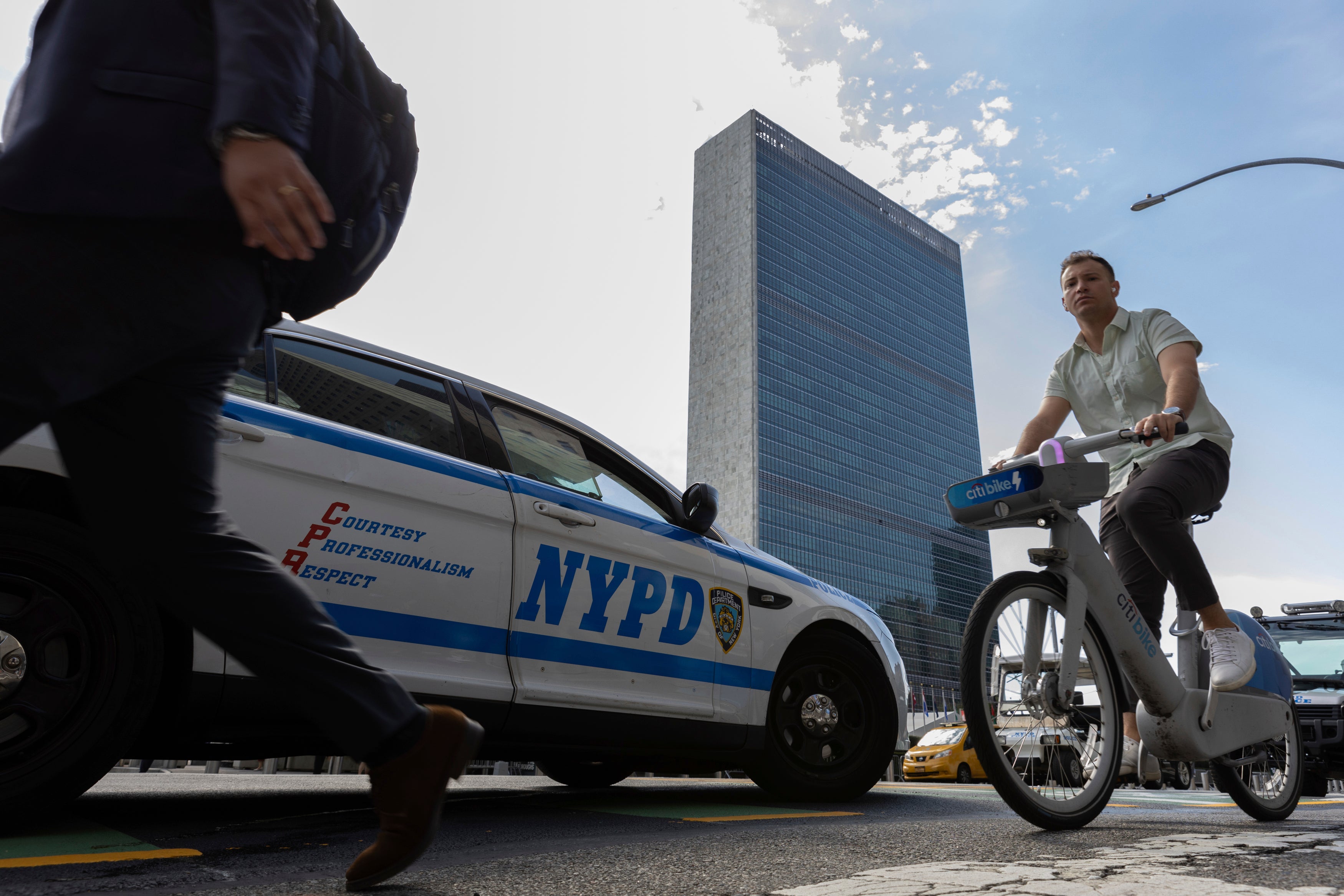Top climate negotiators urge tougher targets, but outsiders say they aren't cutting back themselves
At the United Nations, the troika of the current and next two presidents of U.N. climate conferences are telling other leaders to make their required climate-fighting targets much more ambitious

Your support helps us to tell the story
From reproductive rights to climate change to Big Tech, The Independent is on the ground when the story is developing. Whether it's investigating the financials of Elon Musk's pro-Trump PAC or producing our latest documentary, 'The A Word', which shines a light on the American women fighting for reproductive rights, we know how important it is to parse out the facts from the messaging.
At such a critical moment in US history, we need reporters on the ground. Your donation allows us to keep sending journalists to speak to both sides of the story.
The Independent is trusted by Americans across the entire political spectrum. And unlike many other quality news outlets, we choose not to lock Americans out of our reporting and analysis with paywalls. We believe quality journalism should be available to everyone, paid for by those who can afford it.
Your support makes all the difference.A trio of leaders of international climate negotiations on Thursday urged colleagues to step up efforts to fight global warming, but outside groups and endangered nations told those leaders to look in the mirror, take their own advice — and stop pumping out fossil fuels.
At the United Nations, the troika of the current and next two presidents of U.N. climate conferences told other leaders to make their required climate-fighting targets — due next February — much more ambitious. New national plans should be aligned with the 2015 Paris Agreement goal of limiting warming to 1.5 degrees Celsius (2.7 degrees Fahrenheit) since pre-industrial times, cover their entire economies and include all heat-trapping gases, urged the trio of leaders from the United Arab Emirates, Azerbaijan and Brazil.
“The world is not on track to meet the goals of the Paris agreement,” said Mukhtar Babayev, who takes over as head of international negotiations in November when Azerbaijan hosts the U.N. climate conference. “We face an urgent need to deliver deep, rapid and sustained emissions reduction, including by transitioning away from fossil fuels.”
In a two-hour session, Babayev and his UAE and Brazilian counterparts pushed their “ Roadmap to Mission 1.5. ” The nations of the world have a deadline five months away to create new national targets for carbon pollution cuts. The world's current targets are pointing to 2.7 degrees Celsius (4.9 degrees Fahrenheit) of warming since the mid-1800s, but the three nations want new national plans more aligned with 1.5 degrees Celsius.
Representing small island nations, Samoa Prime Minister Fiamē Naomi Mataʻafa said she appreciates the push and pointed out that countries like hers didn't cause the climate problem, yet are cutting their emissions of heat-trapping gases. Then, during the session, she tweaked richer nations.
“Sadly, we do not see the same level of ambition from countries that bear the most responsibility for this current crisis,” she said. Her organization of 44 small island nations said it was “not overly optimistic that this will significantly move the dial forward.”
Longtime climate negotiation analysts Alden Meyer of the think tank E3G and Bill Hare, CEO of Climate Analytics, which tracks emissions pledges, said the negotiation chiefs from the UAE, Azerbaijan and Brazil were big on soaring rhetoric, but their own nations' actions fell far short.
The UAE, Azerbaijan and Brazilian officials didn't detail how their countries would transition away from fossil fuels, Meyer said, “rather, all three of them are pushing ahead with massive new investments in oil and gas production, making the effort to keep 1.5C alive even more difficult. This is not what real leadership looks like.”
In its last update, Azerbaijan “actually weakened” its target, Hare asserted.
“The troika, all ranking in the top largest oil and gas producing countries in the world, are also on track to collectively increase their oil and gas production by one third by 2035," said Oil Change International Policy Manager Romain Ioualalen.
National climate leaders responded to the trio's pleas by saying they must limit warming to only a few more tenths of a degree and that it was an urgent problem, but on Thursday offered few details on how they would do it.
United Nations climate secretary Simon Stiell said, “We will need to go from a world that knows 1.5 must be achieved to a world that knows how 1.5 will be achieved.”
___
See more of AP’s coverage of the U.N. General Assembly at https://apnews.com/hub/united-nations